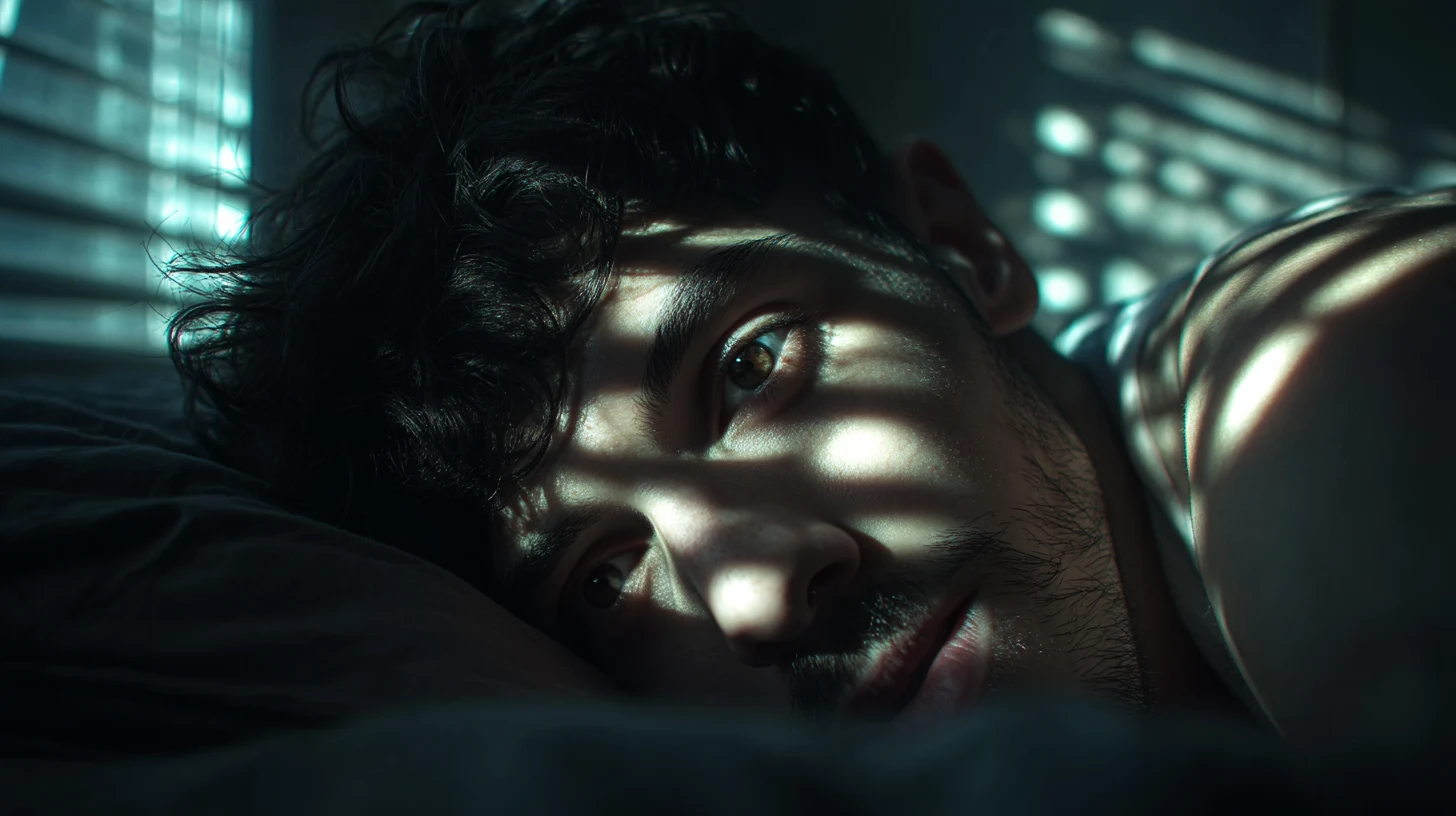
Do you often wonder how to sleep better so that your hard work at the gym finally pays off? We know that discipline in training and diet isn’t everything. That’s why we’re going to explore together how to optimize your sleep to make it a true accelerator of recovery and performance, far beyond the advice you’ve read a thousand times.
[Insert widget here: Alert / Info box] Description: Summary “Key takeaways” on active sleep and discipline.
Sleep: the forgotten pillar of athletic performance
You spend hours at the gym, you weigh every gram of protein… but how much time do you really dedicate to the quality of your sleep? Let’s be honest, we’ve all done it. Thinking that one less hour of sleep means one more hour to train.
Big mistake.
This mentality, I know it by heart. It’s the classic trap of the passionate athlete who believes that only visible effort pays off. Yet, after years of practice and scientific analysis, my conclusion is clear: neglecting your sleep is sabotaging your own results. It’s like building a race engine and running it without oil.
Sleep is not a pause. It’s an active phase of recovery, muscle rebuilding, and hormonal regulation. It’s at night that the magic truly happens. The body releases growth hormone, a key player in anabolism, and gets to work repairing the micro-tears in muscles that we inflict on our fibers during training.
Without quality sleep, protein synthesis slows down and your hormonal balance is disrupted. Cortisol, the stress hormone that breaks down muscle, takes over. In short, you work against yourself.
[Insert widget here: YouTube Video] Description: Explanatory video on sleep optimization.
Understanding the mechanics of sleep to better master it
This is where a huge part of our sleep plays out. To fully benefit from it, you must first understand its mechanics, both very easy in theory but complex in practice.
Your biological clock
Imagine an invisible metronome in your brain that beats the measure over 24 hours: that’s your circadian rhythm. This internal clock not only dictates when to sleep; it regulates your energy, hunger, and hormone release. You understand, it will condition your rhythm.
Its main synchronizer? Light. Morning natural light acts as a starting signal that calibrates your clock. The morning sun is your best pre-workout.
Conversely, blue light from screens in the evening is a saboteur. It sends a contradictory signal to your brain, the blue light says: “it’s still day!” and blocks the production of melatonin. Result: delayed sleep onset and shifted rhythm.
[Insert widget here: Interactive HTML/JS Animation] Description: Visualization of the circadian rhythm (Sun/Moon) and biological clock.
Sleep cycles
Sleeping is not a passive state. Your night is a succession of cycles (4 to 6 generally) composed of several phases: light sleep, deep sleep, and REM sleep. For us athletes, deep sleep is the most precious.
It’s during this phase that the magic happens: muscle fiber repair, immune strengthening, and peak release of growth hormone. It’s your anabolic reconstruction phase. Neglecting it is leaving gains on the table.
REM sleep takes care of mental recovery. It consolidates memory, including motor patterns learned at the gym. Disrupting these cycles with awakenings is like interrupting a crucial download. The goal is to sleep without interruption.
Moreover, many think that a glass of alcohol helps to fall asleep. It’s an illusion. If falling asleep is faster, the impact of alcohol on sleep quality is disastrous: it fragments cycles and destroys deep and REM sleep phases.
[Insert widget here: Interactive HTML/JS Chart] Description: Hypnogram showing sleep phases (Light, Deep, REM) throughout the night.
10 things to do for a good night’s sleep
Enough theory, let’s move to practice. Sleep, like training, requires rigor and regularity. After years of science-based testing, I’ve developed a true combat routine for restorative nights.
Here are the 10 golden rules I apply. Follow them, and I guarantee a noticeable difference in your recovery and energy at the gym. It’s an action plan, not a vague suggestion.
[Insert widget here: Carousel / Scrollable Cards] Description: Checklist of the 10 golden rules (Light, Meals, Caffeine, Alcohol, Sport, Nap, Temperature, Silence, Ritual, Fixed Wake-up).
When nutrition and supplements give a boost
“To sleep well, eat well,” you’ve probably heard this expression which, in practice, may seem true but in reality, even if you feel like you’ve slept well, your body will have struggled so much to digest that sleep will take a back seat. Yes, there are aids, whether natural or with supplements, to help you sleep better
Key nutrients on your plate
Some nutrients are true allies, because as usual, everything or almost everything starts with the plate. One of the most well-known? Tryptophan. This amino acid is the precursor to serotonin, then melatonin, our sleep hormone. You’ll find it in poultry, dairy products, eggs, or nuts.
Another major player: magnesium. It is essential for muscle and nerve relaxation, two conditions for peaceful sleep onset. Think of green vegetables, almonds, and even a piece of dark chocolate to find it in its natural environment.
Tip: Pair these foods with complex carbohydrates in the evening (brown rice, whole-grain pasta). This facilitates the passage of tryptophan to the brain.
[Insert widget here: Icon Grid / Cards] Description: Visual list of key foods (Tryptophan, Magnesium, Complex Carbohydrates, Herbal Tea).
Proven supplements
Let’s be clear: supplements never replace a good lifestyle. Never. But they can be a valuable support. Melatonin is useful for resetting your internal clock (jet lag, night work), but it’s not a universal solution.
Fortunately, there are gentler natural alternatives validated by science. I’m thinking of apigenin, a promising flavonoid extracted from chamomile, which promotes relaxation by acting on the brain’s GABA receptors, without causing forced drowsiness. That’s why we have included a high-quality extract in our sleep formula, for those seeking targeted support.
Other molecules deserve your attention. Here is an overview of those that caught mine after reviewing studies:
- Magnesium (Bisglycinate): For muscle and nerve relaxation. A highly absorbable form.
- L-Theanine: Promotes a state of mental calm without sedation, ideal for stopping racing thoughts.
- Apigenin: Helps reduce anxiety and facilitates natural sleep onset.
- Glycine: An amino acid that can help lower body temperature, a key signal for the body to fall asleep.
Take action: your sleep is your best asset
There you go. You now have all the tools to make your nights a true weapon for your progress. Sleep is not a waste of time; it’s the fundamental pillar on which your muscle gains, energy, and focus during training rest. It’s the time when magic happens: tissue repair, motor memory consolidation, hormonal balance. Never underestimate it.

